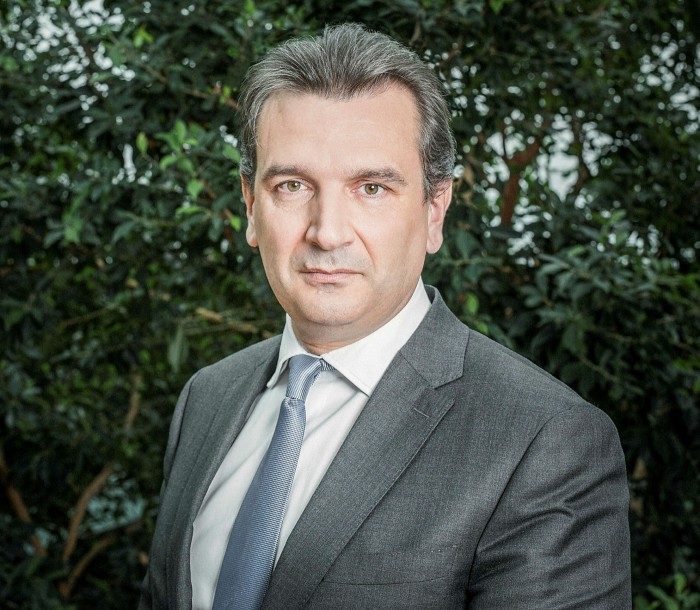Watches and Wonders’ Emmanuel Perrin: ‘Vital for watchmaking to keep our own fashion week’

Roula Khalaf, Editor of the FT, selects her favourite stories in this weekly newsletter.
Emmanuel Perrin is upbeat. This year’s Watches and Wonders event will be his first since he was appointed head of its organising body, Fondation de la Haute Horlogerie, just a few months ago.
“This year is the strongest salon that I think we’ve ever had,” says Perrin of the event that runs online until Tuesday, then restarts on Wednesday as a physical event in Shanghai. “China is pretty much the only place in the world where you can organise the physical event with little risk of cancelling at the last minute.”
The decision to cancel the physical Geneva fair and move it online came last November. “There is a cost of keeping putting off that decision,” says Perrin. “November is when we action the whole ecosystem of subcontractors working with us to set up the fair. Given the situation, we took the responsible decision.” He says the cancellation bill is 25-35 per cent of the total event cost. However, even though part of the fair is held online, the 38 brands in attendance in Geneva is double the number that signed up last year.
The effects of the pandemic notwithstanding, this year’s event is already drawing attention, in that industry giants such as Patek Philippe and Rolex are among the brands that have transferred from the rival fair in Basel to W&W in Geneva. Baselworld, which until last year was the world’s largest and oldest watch trade show, has been rebranded as HourUniverse and is planning a fair this summer.
Indeed, with exhibitors now including Chopard, Chanel, brands from the LVMH portfolio (including Louis Vuitton) and smaller players Corum and Oris, this year’s W&W show can be seen as a vindication of an event that began three decades ago as a splinter group of a handful of brands, led by Cartier — all seeking a more luxurious setting in which to showcase their wares. It was a prescient bet on the direction the industry would take towards haute horlogerie.
Perrin dismisses the accusation often levelled at the fair that it has been effectively a Richemont brand show, citing the many non-Richemont brands that have participated over the years, from Gerald Genta and Franck Muller to Breguet and Richard Mille. That said, Perrin’s day job is running the Richemont watch portfolio, whose chief executives report to him. It is perhaps because of this that he is scrupulous in stressing the independent nature of the FHH and the salon. “If I may remind you,” he says politely, “the FHH is a not-for-profit foundation, at the service of the members, with the mission to develop the savoir faire of watchmaking.”
With the 30-year springtime tussle between Basel and Geneva effectively at an end, he sees the concentration of top watchmakers in the same place at the same time as an opportunity. “It’s vital for fine watchmaking to keep this world rendezvous, this world salon, our ‘fashion week’, in a way. So, for a week to 10 days, we can take over the communication channels at our disposal and amplify that.”
Brands have been able to use the months since the decision to cancel the physical fair to hone their online presence with higher-quality equipment and more impressive studio sets. “What we’ve learnt is there is much more we can do remotely than we thought possible.” Perrin says digital content has become “a much stronger, richer platform to tell the stories compared to before”. When the Geneva salon returns to its physical format, he sees a dynamic digital element as something that will still run in parallel. “It’s the brand with a digital ecommerce ability to engage with their client, but also with a bricks-and-mortar network, that has stronger business plans than the ones without the mix of both,” he argues. The same is true of trade fairs, he says. “There’s definitely a wish to switch from one to the other. I think that’s here to stay.”
But this year, without a physical fair in Europe, the focus is around interactive content, such as “panels, talk shows, a regular morning show, as well as the personalisation, so a guest can very easily design a programme, which can be different from someone else on the platform”.
“Of course, doubling the number of brands has brought some complexity and challenges to accommodate everyone and make sure every maison has their desired slot,” he admits. “The key is that we’re in this together and we all agree to play along the same rules. United we stand, divided we fall.”
Comments